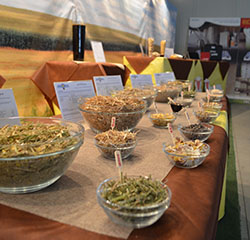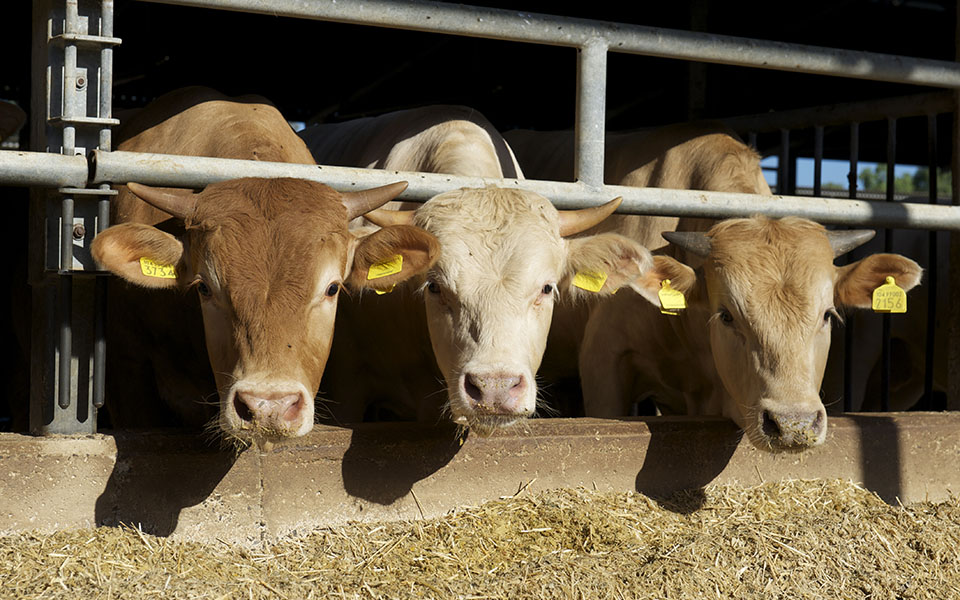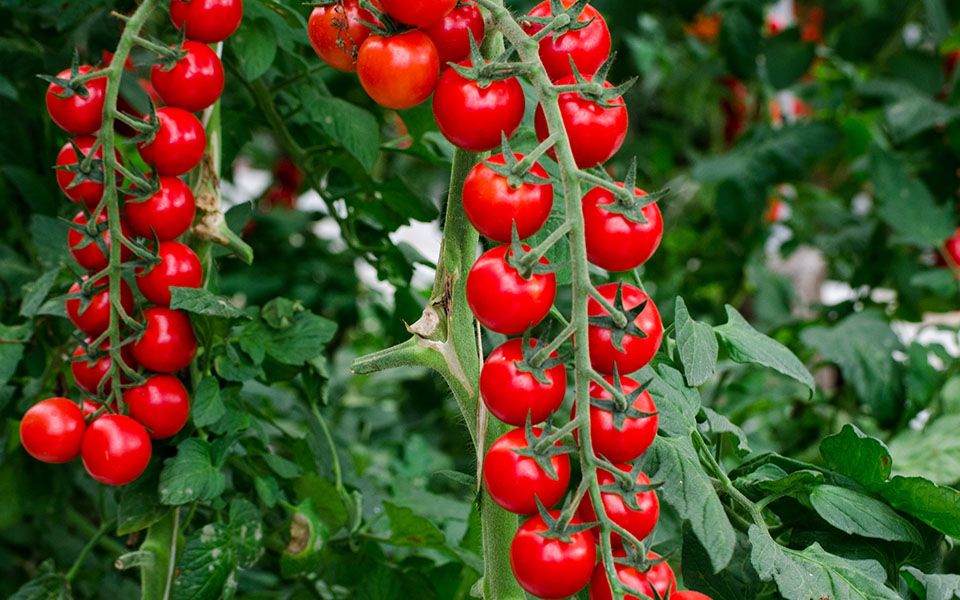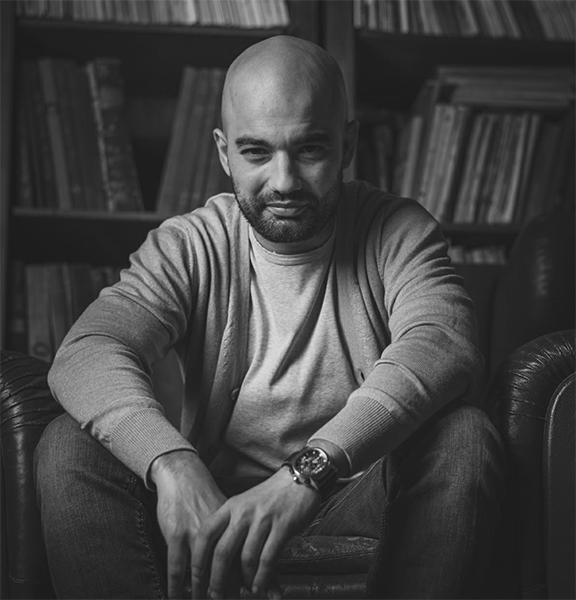
Cooperativa Produttori Arborea
“For some time now we have built a sustainable system for our cooperative that welcomes new initiatives, year after year. We believe that only the principle of circularity can keep the demands of production and the environment in balance"
Marco Peterle is the director of the Arborea Producers Cooperative, founded in 1955 on the plateau surrounding the Gulf of Oristano, rescued from malaria with the reclamation plan imagined for the first time a century ago, a land of fascist colonial utopia, post-war enterprise and today avant-garde production.
Since the 1950s, a slow, steady growth in the regional and national market. Today the products of this corner of Sardinia are exported all over the world. 250 and fifty members, of which at least 100 scattered throughout the island, refer to the large building built a few steps from Road 14 west, where the founding principle of mutuality still stands.
Sandy soils those of Arborea, voracious for water, subject to the tremendous meteorological fluctuations triggered by climate change, which has been affecting production for twenty years now. From winter to summer almost with no intermediate seasons, wiped by floods and droughts. The answer, however, has been decisive, courageous, especially in the last five years. The actions composing the system mentioned by Peterle are many and innovative.
The companies that make up the cooperative are constantly monitored thanks to the images made available by the European Space Agency. A soil analysis method born from the collaboration with the University of Sassari and the MEDSEA foundation, and capable of detecting humidity, vegetation cover, soil water retention, the presence of isotropes and organic substances, the relationship between carbon and nitrogen of weed surfaces. Satellite images give an indication of the degree of wetness of the soils, orient the drip irrigation system, make it more efficient.

Great attention is also paid to animal welfare. The cultivation of grasses and corn is dedicated to the production of particularly healthy blends for large and small ruminants. Experimentation with spirulina algae is being carried out, a cyanobacterium which, if included in the diet, improves animal health and contributes to the quality of the product. The organic cultivation of low-impact products involves carrots and potatoes, while processing waste from leafy vegetables to livestock waste are systematically reused. Sevel projects are then in an experimentation phase. The biodigested material, treated to obtain amendments through the process of reverse osmosis. The use of slaughterhouse waste to cultivate, thanks to colonies of earthworms, a synthetic peat useful both as a soil improver and as a fertilizer (Prisma project).
“The collaboration with MEDSEA has been extremely fruitful, right from the start - says director Peterle. "We need to proceed together with those who have sensitivity and high-level skills in environmental matters, with those who share the idea that the challenge of the new millennium is the reconstruction of harmony between man, his work, and nature. Becoming a MEDSEA supporter was a spontaneous step, the beginning of a path towards an increasingly sustainable future".

Contatti

Cooperativa Produttori Arborea
“For some time now we have built a sustainable system for our cooperative that welcomes new initiatives, year after year. We believe that only the principle of circularity can keep the demands of production and the environment in balance"
Marco Peterle is the director of the Arborea Producers Cooperative, founded in 1955 on the plateau surrounding the Gulf of Oristano, rescued from malaria with the reclamation plan imagined for the first time a century ago, a land of fascist colonial utopia, post-war enterprise and today avant-garde production.
Since the 1950s, a slow, steady growth in the regional and national market. Today the products of this corner of Sardinia are exported all over the world. 250 and fifty members, of which at least 100 scattered throughout the island, refer to the large building built a few steps from Road 14 west, where the founding principle of mutuality still stands.
Sandy soils those of Arborea, voracious for water, subject to the tremendous meteorological fluctuations triggered by climate change, which has been affecting production for twenty years now. From winter to summer almost with no intermediate seasons, wiped by floods and droughts. The answer, however, has been decisive, courageous, especially in the last five years. The actions composing the system mentioned by Peterle are many and innovative.
The companies that make up the cooperative are constantly monitored thanks to the images made available by the European Space Agency. A soil analysis method born from the collaboration with the University of Sassari and the MEDSEA foundation, and capable of detecting humidity, vegetation cover, soil water retention, the presence of isotropes and organic substances, the relationship between carbon and nitrogen of weed surfaces. Satellite images give an indication of the degree of wetness of the soils, orient the drip irrigation system, make it more efficient.

Great attention is also paid to animal welfare. The cultivation of grasses and corn is dedicated to the production of particularly healthy blends for large and small ruminants. Experimentation with spirulina algae is being carried out, a cyanobacterium which, if included in the diet, improves animal health and contributes to the quality of the product. The organic cultivation of low-impact products involves carrots and potatoes, while processing waste from leafy vegetables to livestock waste are systematically reused. Sevel projects are then in an experimentation phase. The biodigested material, treated to obtain amendments through the process of reverse osmosis. The use of slaughterhouse waste to cultivate, thanks to colonies of earthworms, a synthetic peat useful both as a soil improver and as a fertilizer (Prisma project).
“The collaboration with MEDSEA has been extremely fruitful, right from the start - says director Peterle. "We need to proceed together with those who have sensitivity and high-level skills in environmental matters, with those who share the idea that the challenge of the new millennium is the reconstruction of harmony between man, his work, and nature. Becoming a MEDSEA supporter was a spontaneous step, the beginning of a path towards an increasingly sustainable future".

Contacts
La nostra voce dal territorio

Legal head office: c/o Studio Associato Conti-Via Piemonte, 33-09127 Cagliari (Italy) - Headquarter: Via Nazario Sauro 1, 09123 Cagliari (Italy)
(+39) 070 0950439 | info@medseafoundation.org | medsea@pec.medseafoundation.org
Photos ©: Andrea Alvito, Maurizio Naletto
MEDSEA Logo designed by Stefano Asili
